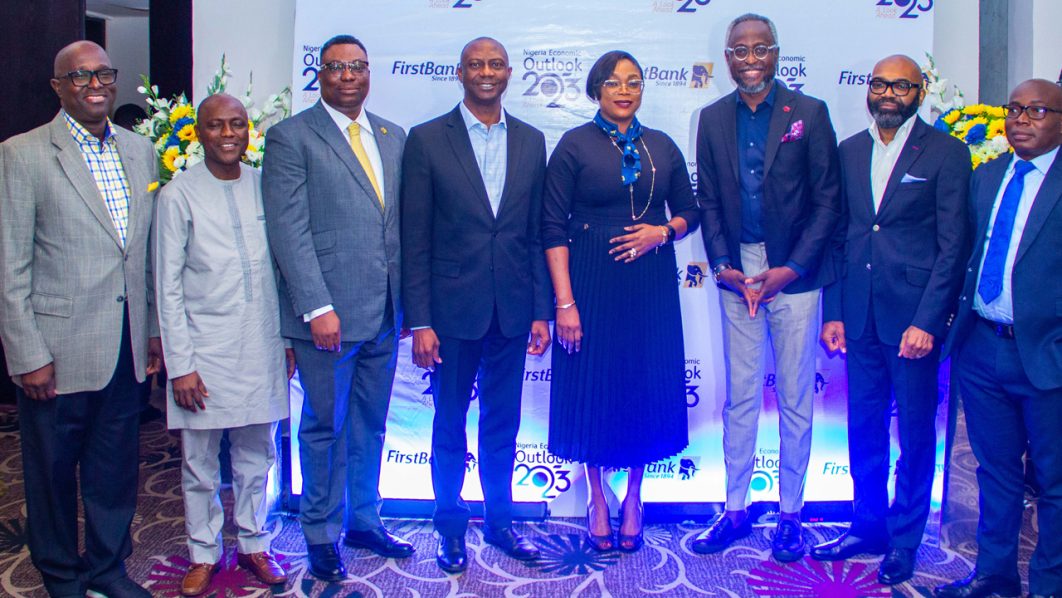
Some of the experts, who spoke at the yearly Nigeria Economic Outlook organised by First Bank of Nigeria Limited, based their optimism on the forthcoming change in the political leadership, rising confidence in the economy and possible commencement of Dangote Refinery.
The projection came ahead of the first Monetary Policy Committee (MPC) meeting holding today and tomorrow in Abuja. The Committee started an aggressive monetary tightening last May, and has so far increased the benchmark interest rate by 500 basis points (bps). The increase has raised the monetary policy rate (MPR) from 11.5 per cent to 16.5 per cent, the highest in decades.
The market is expecting a slower rate increase and a pause or a pivot later in the year.
Last month, the inflation rate declined slightly, from 21.47 per cent to 21.34 per cent. Some experts said the drop in inflation is not enough to force the hand of the rate-fixing MPC. But what is clear from the flattening curve, however, is that the worrisome inflation may have signaled a peak.
The MPC members will have to weigh the concern over inflation vis-à-vis the strength of growth. There is also a rising concern about the impact of election spending as the country goes to the polls in the next two months.
Speaking at the event, the Chief Consultant of B. Adedipe Associates, Dr. Biodun Adedipe, said the assumption of new political leadership would boost confidence and trigger new growth momentum. If nothing else is certain, he said, all the leading presidential candidates have business-friendly manifestoes.
“To that extent, we project that there is the likelihood that if any of the candidates get to the office, he is likely going to put a cabinet together before September and start running. If that happens, we will see a second half-year that will be better than the first half-year,” Adedipe said.
The economist also projected the country’s gross domestic product (GDP) to close last year at about 3.1 per cent with this year’s growth expected to surpass the figure. Besides leadership change, his optimism was informed by the expected impacts of the renewed focus on infrastructure on business performance, the positive signal from purchasing manager index (PMI), possible monetary policy normalisation among others.
Adedipe said governments across the world would need to intervene in economies to inspire confidence. The right information, he said, is also required to inspire confidence among consumers as well as producers. He insisted the recession often results from low confidence in the economy by economic agents.
“I see this kind of forum by First Bank as a very useful platform. The way I look at this is that First Bank is saying to its customers that there is hope despite the challenges. This is important,” he said.
He called on banks and other businesses to pay attention to innovation, noting, “the next branch of First Bank is right there on individuals’ mobile phones”.
According to him, the median age of Nigeria’s population, which is 18 years, provides useful insights to companies that want to upscale. How businesses relate with young people, he noted, makes a lot of difference in the potential they have for growth.
He called on the government to consider health as a social investment to achieve sustainable growth. The youthful nature of Nigeria’s population, he said, means the country needs to invest more in education to harness the potential of young people.
Ugo Obi-chukwu, a personal finance expert and founder of Nairametrics, was also hopeful that the commencement of Dangote Refinery would reduce the pressure on foreign exchange and increase business activities in retail trucking.
“The Dangote Refinery, if it takes off in the second half of the year as planned, will provide an opportunity for the country to wean itself of FX pressure. We will not need to finance the importation of petroleum products because we will have a refinery that will meet the local need,” he stressed.
Seyi Oyefeso, an executive of First Bank, also believed a new kind of confidence ahead as new sets of political leaders take the reins. As confidence level increases, he said, the country would begin to see more final investment decisions and business decisions.
Oyefeso said First Bank was a ready partner for small and medium-scale enterprises (SMEs). With its legacy advantage, reach and experience in the structured informal sector, he said, the bank has an edge in SME support.
“Looking at the Nigerian space, the SMEs are all over the place. Over the years, we have perfected the play in dealing with SMEs. I am certain that there is a product that meets the needs of every SME. We are your best bet because we understand the formal and informal structure of the economy,” he said.
At the panel, the discussants dwelt extensively on the youthful population and whether it is a benefit or a burden on the country. There were questions on the value of a youth population with little or no access to quality education. A leg of the discussion also examines issues around urbanisation and how the government can proactively mainstream the millions who drift to urban centres into productive strictures.



